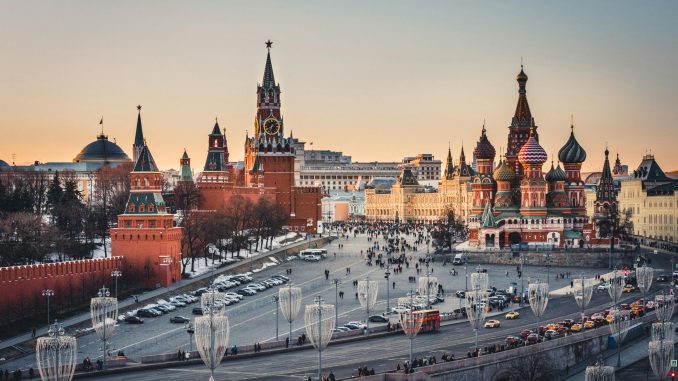
Russia is dipping its toes into the world of cryptocurrency with a proposed bill aimed at legalizing and regulating crypto mining within its borders. The bill, submitted to the State Duma, the lower house of parliament, seeks to strike a balance between encouraging this new industry and mitigating potential risks.
Russia Seeks Order In Crypto Frontier
The draft law, championed by Anton Gorelkin, deputy chairman of the State Duma Committee on Information Policy, proposes a licensing system for crypto miners. Only registered businesses and individual entrepreneurs would be allowed to mine, ensuring a level of accountability and oversight.
However, the bill acknowledges the existence of hobbyist miners by allowing individuals who stay below a yet-to-be-determined energy consumption limit to mine without a license.
This tiered approach reflects a pragmatic recognition of the current crypto mining landscape in Russia. While large-scale mining operations require regulation, individual miners with minimal energy consumption pose less of a risk.
Balancing Innovation With Security
The bill prioritizes anti-money laundering (AML) measures. Cryptocurrencies, with their decentralized nature, can be attractive for illicit activities. To combat this, miners would be required to report their activities to authorized bodies, providing details like identifier addresses and obtained digital currency.
Bitcoin is now trading at $62.930. Chart: TradingView
This information would be accessible to Rosfinmonitoring, Russia’s financial intelligence agency, allowing them to monitor for suspicious transactions.
The ability to sell mined cryptocurrencies is another key aspect of the bill. While the exact details remain unclear, the possibility of selling on foreign platforms suggests a potential limitation on domestic crypto trading. This could be an attempt to exert greater control over the nascent crypto market within Russia.
Russia’s Geopolitical Gamble With Crypto
Interestingly, Gorelkin emphasizes the role of cryptocurrency in circumventing sanctions placed on Russia. This adds a political dimension to the bill. Legalizing crypto mining could provide Russia with a way to access international financial markets that might otherwise be restricted due to sanctions.
However, the effectiveness of this strategy remains to be seen. Major crypto exchanges, wary of regulatory scrutiny, may be hesitant to facilitate transactions involving sanctioned entities.
Unresolved Questions And The Road Ahead
The bill, while a positive step towards legitimizing crypto mining in Russia, leaves some questions unanswered. The specific energy consumption threshold for unlicensed miners needs clarification. Additionally, the criteria and scope of potential regional mining bans are yet to be defined. These details will likely be the subject of further debate before the bill is finalized.
Overall, the proposed bill represents a cautious embrace of cryptocurrency mining by Russia. It acknowledges the potential of this new technology while outlining measures to address concerns about money laundering, energy consumption, and potential uses to circumvent sanctions.
Featured image from Pexels, chart from TradingView





Be the first to comment